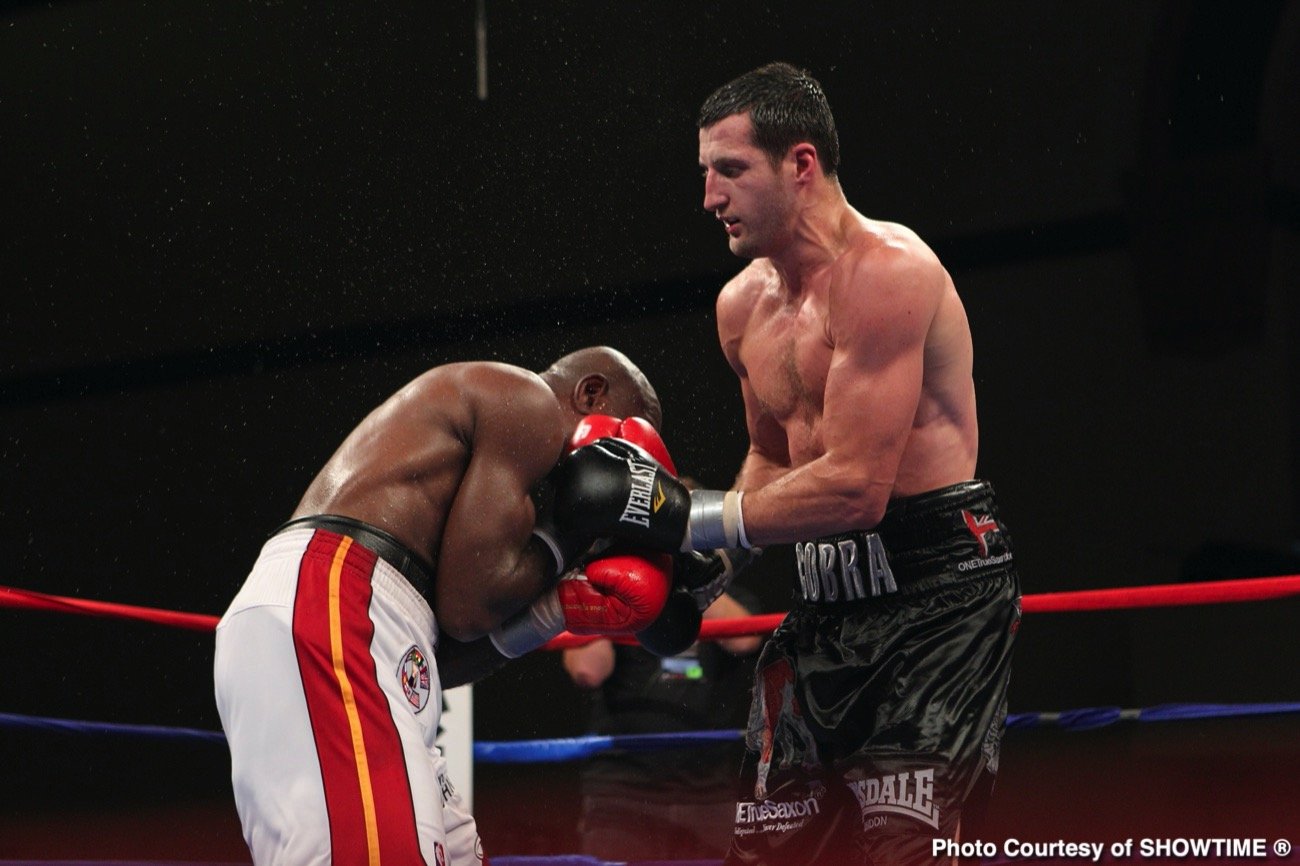It’s tough for anyone to call a professional fighter a quitter – be they a fellow fighter, a fan who has never once laced on gloves, an expert, or a pundit. It is in many ways the ultimate insult. Yes, fighters do sometimes remain on the canvas or on their stool, this after reaching the point of being unable to go on. Sometimes, a fighter is pulled out by his team. But what is a quitter?
Did Sugar Ray Robinson quit in his fight with Joey Maxim, after the overwhelming heat got to him in a very bad way? If we take the word ‘quit’ at face value, then, yes, he did. Now, that is of course harsher than harsh. But who decides when the quit tag is appropriate? Nobody knows what a fighter is going through, or has gone through, and nobody knows what is going on inside a fighter’s head during a fight.
Remember, some people called Gerald McClellan a quitter after McClellan went down on one knee in that 10th round in that savage fight with Nigel Benn. Yet look at the terrible injuries McClellan had suffered. How dare anyone have called him a quitter? In fact, if Gerald HAD quit long before than 10th round, maybe he would be living a far better life today?
The point is, it’s never that black and white, it’s never that simple. If a fighter opts to stay down or if he or she opts to stay on the stool, technically, yes, they have quit. But there is almost always more to it. Who knows how many fighters who quit did so but then hid an injury from the public, the undisclosed injury the reason they did what they did?
And if a fighter does quit in a fight, even once, is that fighter’s rep forever damaged? Can a fighter who has quit never be looked at as a true champion, as a genuine great?
Carl Froch, speaking at The Hall of Fame over the weekend, this after he had been inducted and deservedly so, made the comment that “World champions don’t quit, and quitters do not get inducted into The International Boxing Hall of Fame.”
Later that same evening, Froch found out how tricky it is coming out with such a seemingly non-returnable statement. Is Roberto Duran a true champion? Of course he is? Is Duran more than worthy of being in The HOF? Of course he is. But Duran quit, didn’t he? He sure did, in the infamous ‘No Mas’ fight. Froch later explained to Duran’s daughter why Roberto is not a quitter.
“Later on that evening, a young lady came up to me and she said, ‘Can I just ask you, Carl? You said quitters don’t get inducted, what do you think about my dad, Roberto Duran? Because of his fight with Sugar Ray Leonard,’” Froch explained when speaking on his YouTube channel. “I said, ‘Listen, your dad’s an absolute legend of the game, hard as nails, tough, he’s like a demon, he’s got them dark eyes. He will fight to the death, he would never ever quit.’
“Quitting, for me, is different, it’s when you don’t get up off the canvas or you get hit with a body shot and you don’t want to continue. The ‘No Mas’ situation, against Leonard, was pure frustration, it kind of shows you what Duran is, it summarises him. He’s a do or die man, that was basically saying f**k you, if you’re not going to stand and fight with me, and have a tear-up, I don’t want any of it.”
It’s worth remembering how utterly disgusted Duran’s fans were when their hero did what he did, with Duran pretty much having to go into hiding. Now, Froch is basically saying Duran isn’t his definition of a quitter, that what Duran did was different. You see how hard it is calling any and all fighters who consciously make the decision to not carry on a quitter? It is a tough one.
Is there an acceptable time for a fighter to quit, and conversely, is there a time when quitting is wholly unacceptable? And if so, who is qualified to make the distinction?

